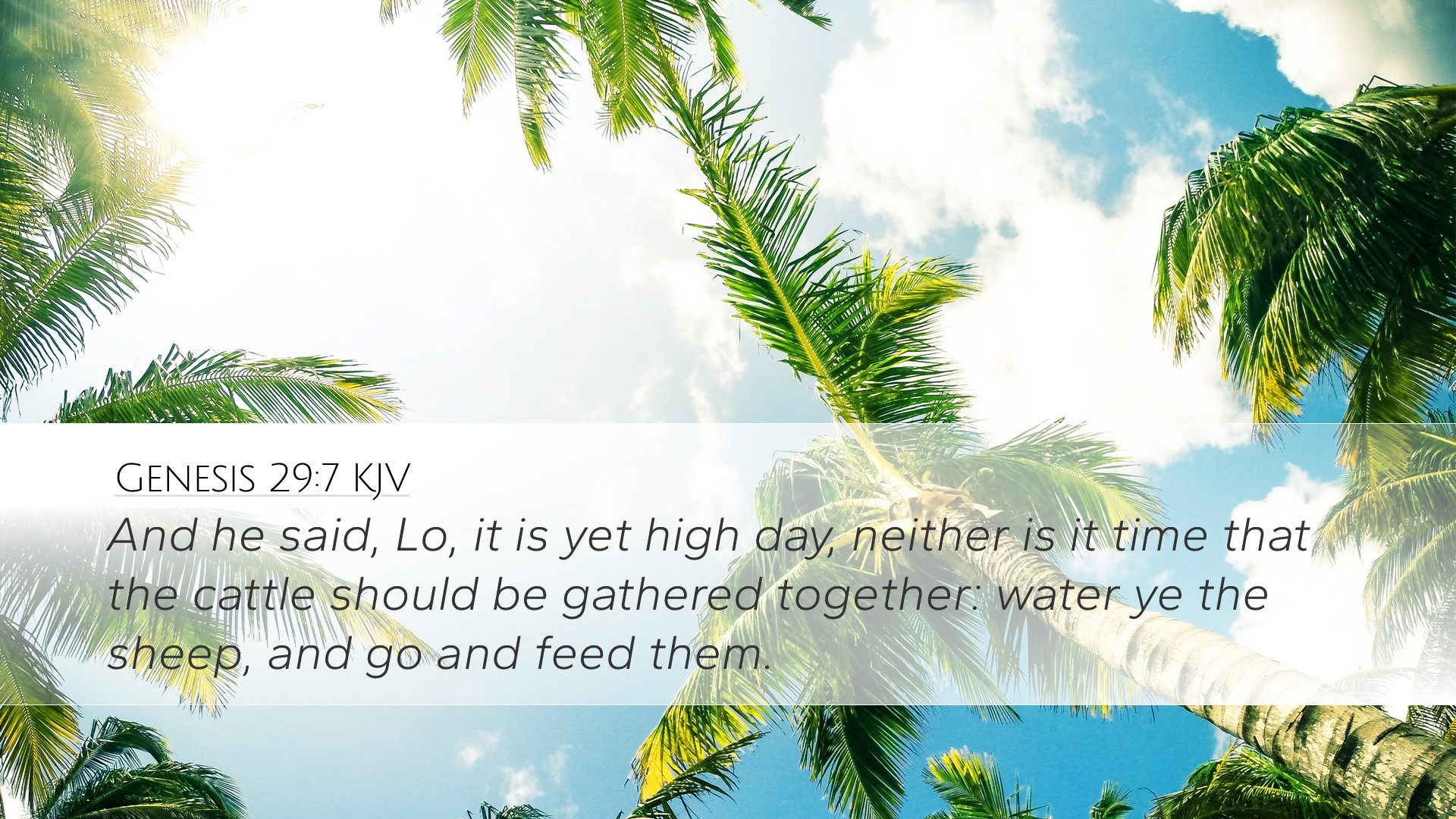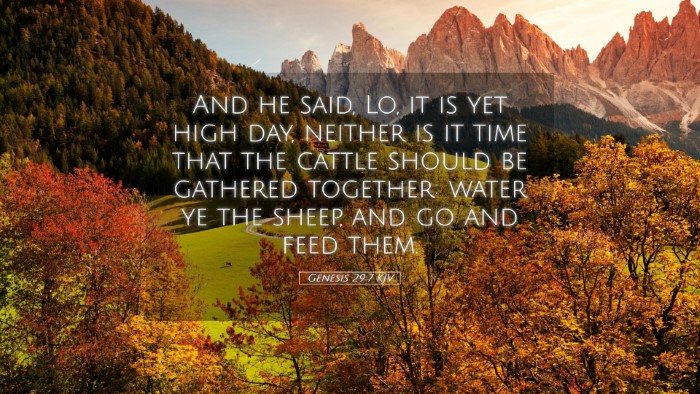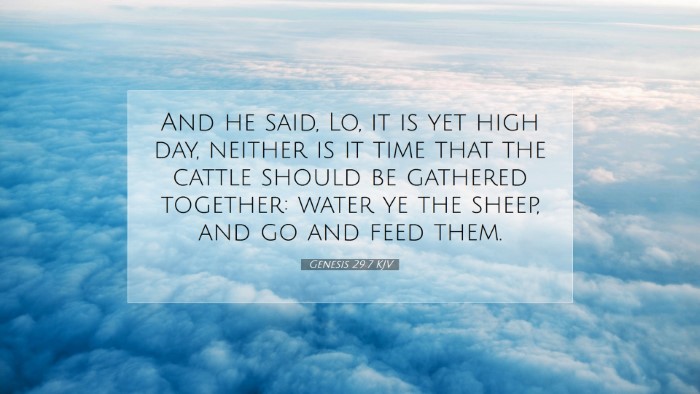Commentary on Genesis 29:7
Verse Text: "And he said, Lo, it is yet high day, neither is it time that the cattle should be gathered together: water ye the sheep, and go and feed them."
Introduction
This verse occurs in the narrative concerning Jacob’s arrival in Haran, where he encounters Rachel, Laban's daughter. The context of this passage provides significant insights into societal norms, agricultural practices, and the development of divine relationships. Commentaries from Matthew Henry, Albert Barnes, and Adam Clarke offer rich interpretations valuable for pastors, theology students, and biblical scholars.
Exegesis
The significance of Genesis 29:7 begins with Jacob’s awareness of time and appropriate agricultural practices. He observes that it is still early in the day, illustrating his practical wisdom and understanding of shepherding duties.
1. Jacob’s Practical Wisdom
Henry's Commentary emphasizes Jacob’s practical nature, noting how he determines what actions are necessary for the well-being of the sheep. Jacob's advice to the shepherds reflects an understanding of the importance of timing in agricultural routines. This high regard for time and duty is a quality that would serve him well as he faces future challenges in Laban's household.
2. Importance of Community
Barnes’ Notes reflect on the communal aspect of shepherding. Jacob's question posits a relational dynamic that fosters community, emphasizing that they should not only water the sheep but also prioritize their feeding. The norms of hospitality and mutual support are highlighted in this interaction, informing us about the culture of pastoral care in ancient times.
3. Theological Implications
According to Clarke's Commentary, the actions within this verse have theological underpinnings that hint at God's providence. Jacob’s arrival at the well symbolizes the beginning of a significant journey not only for him but also within the unfolding narrative of salvation history. God’s orchestration of events highlights that even mundane actions are significant in His divine plan.
The Role of Water in Biblical Symbolism
The reference to watering the sheep is steeped in biblical symbolism. Water frequently represents life, nourishment, and blessing throughout scripture.
1. Water as a Symbol of Life
Henry’s insights can lead us to interpret this water as a metaphor for both physical and spiritual sustenance. Just as sheep require water, so too do God’s people need the living water that Christ offers. This connection speaks to the nourishment Christians find in scripture and divine fellowship.
2. A Call to Action
Clarke emphasizes the necessity of action. Jacob's mention of watering the sheep before they are fed reflects a principle of preparation before partaking in God's blessings. It prompts readers to consider how they too might prepare themselves for spiritual received blessings.
Application for Today
Genesis 29:7 challenges modern readers to reflect on their own priorities and practices regarding their spiritual walk and community interactions.
1. Prioritizing Community Responsibilities
Barnes’ commentary implies that community responsibilities direct our lives as believers. Just as Jacob encourages the shepherds to water and then feed their sheep, believers should prioritize each other’s spiritual and practical needs within their communities.
2. Awareness of God’s Timing
Henry highlights the importance of recognizing God’s timing. Pastors and scholars are urged to remain attentive to God's rhythm in their ministries and lives. Timing is crucial, and discerning the right moment allows for more fruitful ministry and interpersonal relationships.
Conclusion
Genesis 29:7 serves as a reminder of the importance of practical wisdom, community engagement, and recognition of divine providence. The insights derived from public domain commentaries invite us to cultivate a holistic approach to faith that recognizes the intertwining of the mundane and the sacred under God's providential care.


